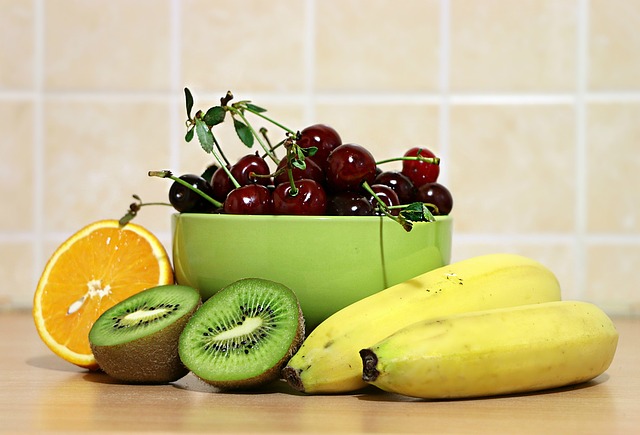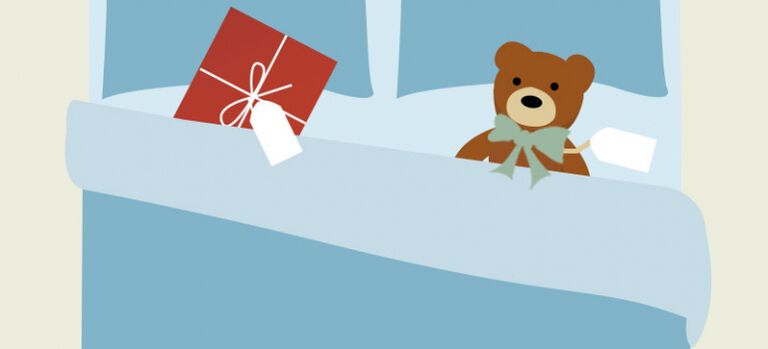HOW YOUR EATING HABITS AFFECT YOUR SLEEP

It’s no secret that eating a healthy, balanced diet can provide plenty of benefits in everyday life. Eating well can deliver more energy throughout the day, it can make it easier to maintain an ideal weight, and it can help to keep the body healthy and functioning correctly.
But what about sleep? While it may surprise some people, food can have a huge impact on quality of sleep. Certain foods that are spicy, fatty or sugary can negatively affect sleep, as can the consumption of caffeine, alcohol or heavy meals before bedtime.
In fact, research revealed in the inaugural TEMPUR sleep survey showed just how much fatty, processed foods could affect sleep. Results indicated that 40% of participants who ate fast food less than once a week enjoyed ‘good’ sleep, compared to just 15.4% of those who ate it every day.
If you suffer sleepless nights, finding out how to fall asleep or how to get to sleep – as well as how to sleep better – may seem like an endless quest. However, investing in good sleep hygiene, such as making healthy food choices and avoiding certain types of food before bedtime could provide the solution you are searching for.
Let’s take a look at foods that act as natural sleep remedies, helping to provide a better night’s sleep, as well as foods to avoid every day, before bedtime in particular.
WHAT FOODS HELP YOU SLEEP?
Before going into more detail regarding particular types of food that can act as a natural sleep aid, it’s worth looking at your diet as a whole. If you find you can’t sleep or you have trouble staying asleep, making changes to the way you eat all day, every day could be incredibly beneficial.
Try to find a balance in the way you eat, by eating balanced, nutritious meals and snacks, evenly spaced throughout the day. Certainly, you should avoid skipping meals early on in the day, to then eat a large meal at night.
Instead, eat a mix of protein and carbs for breakfast, and then have six 250-300 calorie mini meals throughout the day. By eating something nutritious every few hours, the body and brain can maintain the right balance of hormones, which is essential for falling – and staying – asleep at night.
Vitamins and Minerals Essential for Good Sleep
- B Vitamins: Vitamin B6 (found in poultry, fish, chickpeas and bananas) helps your body process tryptophan and turn it into sleep-inducing serotonin faster. Vitamin B3 (found in beets, pork, poultry and peanuts) is a common ingredient in herbal sleep aids, as it can extend the REM cycle and limit the number of times you wake in the middle of the night.
- Calcium: Calcium (found in yoghurt, milk and cheese) is a natural relaxant that has a calming effect on the body’s nervous system.
- Zinc: A deficiency in zinc (found in oysters, beef, Alaska king crab and fortified cereal) has been linked to insomnia.
- Iron: A lack of iron (found in oysters, clams, beef tenderloin and dark-meat turkey) can cause symptoms similar to restless leg syndrome.
- Copper: Copper (found in whole grains, beans, nuts, potatoes and dark leafy greens) regulates serotonin.
Foods that Act as a Natural Sleep Aid
- Kiwis: Kiwis are full of vitamins C and E, serotonin and folate, all of which may aid sleep.
- Soy: Foods made with soy such as tofu, miso and edamame, are rich in isoflavones, compounds that increase the production of serotonin, a brain chemical that influences the body’s sleep-wake cycle.
- Fibre: Eating more fibre has been associated with more restorative slow-wave sleep, where the more you eat, the better you sleep
- Fish: High in vitamin B6, fish such as salmon, halibut and tuna can help the body make melatonin.
- Cherry Juice: Melatonin-rich, tart cherry juice has been shown to aid sleep, even reducing the severity of insomnia in some chronic sufferers.
- Kale: Green leafy vegetables, such as kale and collards, are high in calcium, working in the same way as dairy products to add calcium to a diet, aiding in better sleep.
- Whole Grains: Bulgur, barley and other whole grains are rich in magnesium. Consuming too little magnesium may make it harder to stay asleep.
- Bananas: A good source of vitamin B6, bananas also contain natural muscle-relaxants magnesium and potassium.
WHAT FOODS SHOULD BE AVOIDED FOR BETTER SLEEP?

Just as there are certain foods that can promote high-quality sleep, there are also foods that can make good sleep hard to find. These can include:
- Caffeine: The body takes about six hours to metabolise caffeine, so it’s best to avoid food and drink that contain caffeine past late afternoon, especially dark chocolate and energy drinks.
- Sugar: Sugar provides a temporary energy boost, elevating blood sugar levels to make it difficult to fall asleep.
- Fatty Foods: Fat stimulates the production of acid in the stomach, which can cause heartburn and hinder sleep.
- Alcohol: Metabolising quickly, alcohol can cause you to wake up multiple times throughout the night. Drinking alcohol can also cause you to snore, which may affect your sleep quality, as well as your partner’s.
- Spicy Foods: For some, eating spicy foods at night may result in a poor night’s sleep, when compared to a blander diet. Spicy foods can also result in heartburn, causing further sleep-related problems.
Want to find out more about how diet and exercise can affect your quality of sleep? Check out TEMPUR’s informative sleep blog to find all the need-to-know info on sleep and essential sleeping tips.
* High-glycemic-index carbohydrate meals shorten sleep onset. The American Journal of Clinical Nutrition. http://ajcn.nutrition.org/content/85/2/426.full
Feel it for yourself
Find a TEMPUR store or Stockist and try out our range of mattresses for yourself

SIGN UP FOR THE NEWSLETTERS!
By signing up, you agree to receive TEMPUR Australia’s products, services, news, reviews and promotions by emails. For more information on how we process your personal data, please refer to our Privacy Policy.



